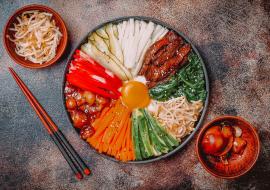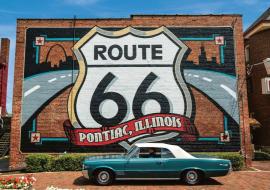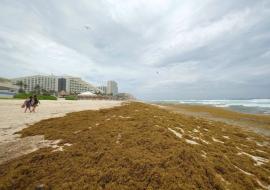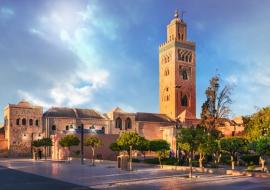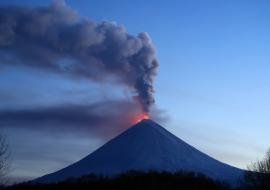8th Seminar of Canadian Studies at Eastern University
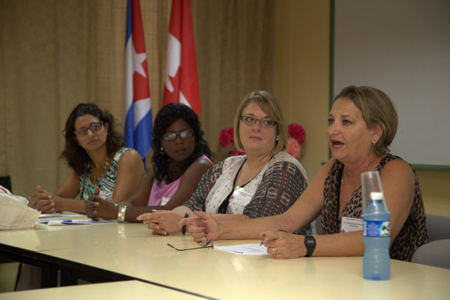
The fruitful development of the diplomatic relations between Cuba and Canada, which this year celebrate the 70th anniversary, was recently highlighted by Mrs. Guylene Le Clair, First Secretary of the Canadian embassy, during the 8th Seminar on Canadian Studies hosted by the Eastern University (UO is the Spanish acronym).
Click on Santiago de Cuba: A City of 500 Years
The academic collaboration is one of the most important areas to be praised in these 70 years of uninterrupted relation, thus contributing to foster feeding programs and produce highly sophisticated vaccines, the diplomat pointed out.
Canada is presently interested in sharing with Cuba its experience in such fields as cooperativism, food security and renewable energies – Mrs. Le Clair underlined – with particular aim at influencing the governmental sphere, private sector, civil society, the academic world and communities. This is all part of Canada’s commitment with the region so as to achieve what she defined as a “prosperous, safe and democratic hemisphere.”
Mrs. Le Clair gave Dr. Sc. Diana Sedal Yanes, acting rector of UO, a selection of texts written by Haitian-Canadian intellectual Dany Laferriére in order to foster the study of Canadian culture and traditions, and she spoke highly of the existence of this kind of space in different Cuban universities so “the values and diversity” of her nation can be shared.
The opening lecture, given by historian Hall Klepak – honorary member of Cuba’s Academy of Historians and Professor Emeritus of Canada’s Military College – was about the visit to Cuba in 1994 of Mr. John Savage, Prime Minister of the Canadian New Scotland province, from the point of view of outstanding intellectual and friend of the island, John Kirk, a professor at Dalhousie University, who was described as the most remarkable Cuban expert in Canada as he has published 17 books related to our homeland.
Klepak shared with the attendees an unpublished video on the reception offered by Commander in Chief Fidel Castro to the politician and a delegation made up of over forty business men, who were exploring business opportunities with Cuba. The images show how the leader of the Revolution praises the “firm” and “loyal” position held by the Canadian people when it comes to following a “free” policy toward Cuba in spite of external pressures, and he describes them as “good people, magnificent, we’re proud to be friends of that nation.”
Professor Klepak also said that way before the establishment of diplomatic relations, both countries had been holding consular contacts, since 1903, with the precedent of trading activities related to rum, sugar and codfish during the 18th century despite of the opposition shown by the Spanish crown.
With several panels dedicated to Students, Linguistics, Literature, Culture and Economy and Tourism, as well as the exhibition of audiovisual materials and posters, the event gathered national experts on matters related to Canada and students from the Augustana University, Alberta.
One of the presentations tackled the humanist character of the Cuban Family’s Medical Program with Community Health Care Centers in Canada, which see prevention as the priority in terms of primary health attention. The speaker was Giselle Lucia Vega Fonseca, a student from the Medical Sciences University’s Faculty 1.
A study developed by Yenia Infante Frometa on canadianism as an element of Canadian identity was one of the most acclaimed presentations; as well as the Cuban experience in the adult literacy campaign in different regions of Canada by means of “Yo si puedo” program, set out by MSc. Yaneiris Castro.
The debate was also triggered by other topics related to graphic visual arts, culinary tradition, characteristics of the Canadian economy and its trade relations with Cuba, and a characterization of the Canadian tourism market in Santiago de Cuba as a destination.
During the second day, the attendees also talked about the position of Canada in the process of restoration of diplomatic relations between Cuba and the United States, emigration of Chinese women or the experience of immigrants in that country, biodiversity, political marketing and literature, among other interesting topics.
The Cathedra of Canadian Studies at the UO is one of the six of its kind established in different universities throughout the country. In the case of the easternmost alma mater, the Cathedra has been working for over a decade along with the Foreign Languages Department at the Humanities Faculty, and it gathers sociologists, historians, psychologists, philosophers, lawyers, economists and other specialists interested in the English-speaking world, Maria Barbara Couzo explained.
In numerous visits to our city, diplomats from the North American nation have underlined that the bilateral links with Cuba, despite of the ideological, idiomatic or political differences, are based on mutual respect, deference and non-intervention in domestic affairs.







